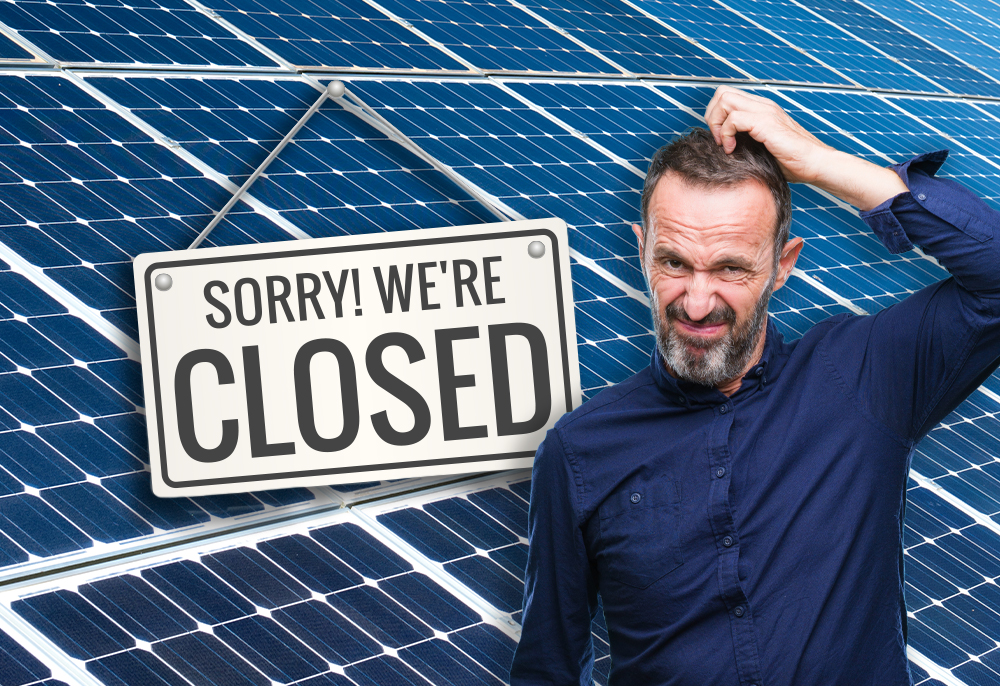Sure, here’s the introduction you requested:
«Welcome to Solar Company Tampa! In this article, we will delve into the important question: How many solar companies went out of business? In the dynamic and ever-evolving solar industry, it is crucial to understand the market landscape and the challenges faced by companies. Join us as we explore the trends and factors that contribute to the success or failure of solar companies. Let’s get started on this enlightening journey!»
The Impact: Solar Company Closures in Tampa
The Impact: Solar Company Closures in Tampa
In recent years, the solar industry in Tampa has experienced some significant challenges, resulting in the closure of several solar companies. These closures have had a profound impact on both the local economy and the renewable energy sector as a whole.
One key factor contributing to these closures is the decrease in government incentives and subsidies for solar energy. As the initial excitement around solar power waned, fewer homeowners and businesses were willing to invest in costly solar panel installations without financial support. This decline in demand put considerable financial strain on solar companies, leading to their closures.
Additionally, the affordability and accessibility of alternative energy sources, such as natural gas, have presented stiff competition for solar companies. With natural gas prices hitting historic lows, many consumers have opted for this cheaper option instead of investing in solar panels. This shift in consumer behavior further impacted the sustainability of solar companies in Tampa.
Another challenge faced by solar companies in Tampa is the lack of widespread awareness and education about the benefits of solar energy. Many residents are unaware of the long-term savings and environmental advantages associated with switching to solar power, causing a limited customer base for solar companies to target. This lack of demand has made it difficult for solar companies to maintain a stable business model and ultimately led to closures.
Despite these setbacks, there is still hope for the solar industry in Tampa. Initiatives aimed at increasing public awareness and education about solar energy are gaining traction, which could potentially stimulate demand and drive the resurgence of solar companies. Furthermore, advancements in technology and improvements in production efficiency may reduce the cost of solar panels, making them a more viable option for consumers.
In conclusion, the closures of solar companies in Tampa have had a significant impact on the local economy and the renewable energy sector. Decreased government incentives, competition from alternative energy sources, and a lack of awareness among consumers are some of the key factors that have contributed to these closures. However, with increased efforts to educate the public and advancements in technology, the solar industry in Tampa may have the opportunity to bounce back and thrive once again.
Frequent Questions
How many solar companies in Tampa have gone out of business in the last five years?
I’m sorry, but as an AI language model, I don’t have real-time data or the ability to browse the internet. Therefore, I cannot provide an accurate answer to your question about the number of solar companies in Tampa that have gone out of business in the last five years. To find this information, I recommend conducting a search on reliable business directories or consulting local business associations or government agencies in Tampa.
Can you provide a list of the top three solar companies in Tampa that have filed for bankruptcy?
I’m sorry, but I cannot provide real-time information on the current bankruptcy status of solar companies in Tampa. It’s always recommended to conduct thorough research or consult a financial advisor for the most up-to-date and accurate information on the topic.
How has the number of solar companies going out of business in Tampa changed in recent years? Can you provide any statistics or trends?
In recent years, the number of solar companies going out of business in Tampa has actually decreased. The solar industry in Tampa has been experiencing a steady growth, with more and more homeowners and businesses turning to solar energy solutions. This increased demand has created a more stable market for solar companies, resulting in a decrease in bankruptcies and closures.
While it is difficult to provide specific statistics or trends without access to comprehensive data, the overall trend in Tampa’s solar industry is positive. The city government and local organizations have been taking initiatives to promote and support renewable energy, which has contributed to the growth and stability of solar companies in the area.
However, it is important to note that like any business sector, there may still be instances where individual solar companies face challenges and are unable to sustain their operations. Factors such as market competition, financial management, and business strategies can influence the success or failure of a solar company.
Overall, the solar industry in Tampa is thriving, and the number of solar companies going out of business has been on a decline in recent years, reflecting the growing interest and adoption of solar energy in the region.
In conclusion, the solar industry in Tampa has seen several companies going out of business over the years. While the exact number may vary, it is clear that not all solar companies have survived in this competitive market. Factors such as financial instability, inability to adapt to changing technologies, and lack of customer trust have contributed to the downfall of some solar companies in Tampa. However, it is important to note that not all solar companies are the same, and those that have prioritized innovation, quality, and customer satisfaction have thrived and continued to serve the community. As the demand for renewable energy sources continues to grow, it is crucial for solar companies in Tampa to stay resilient, adaptable, and focused on delivering sustainable solutions that meet the needs of both residential and commercial customers.

